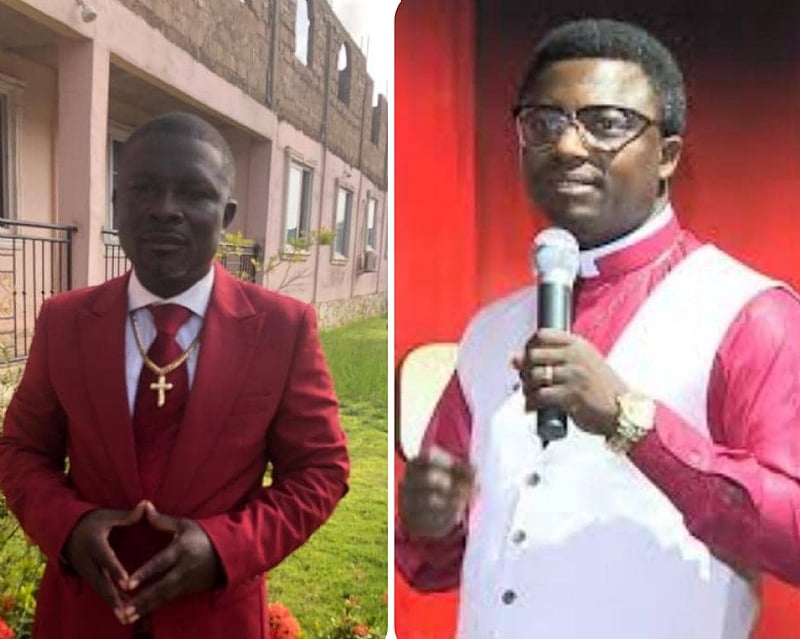The aftermath of the 2024 Ghanaian elections has brought into sharp focus the accuracy and credibility of religious prophecies, particularly those concerning the political landscape. Reverend Ebenezer Adarkwa Yiadom, popularly known as Opambour, has emerged as a central figure in this discourse, gaining significant recognition for his purportedly accurate prediction of John Mahama’s electoral success. This endorsement, coming from Very Reverend Anthony Kwarteng, the General Overseer of the Christ Power Miracle Mission Church in Dome Kwabenya, Accra, lends considerable weight to the claims of Opambour’s prophetic abilities. Rev. Kwarteng’s public affirmation highlights a growing concern within the religious community: the need to distinguish between genuine prophetic pronouncements and misleading declarations often employed for personal gain or to manipulate public opinion.
Rev. Kwarteng’s endorsement stems from his observation of pre-election prophecies, where he noted a prevalent trend among many religious leaders predicting the defeat of the National Democratic Congress (NDC). In contrast, Rev. Adarkwa Yiadom consistently maintained that John Mahama would emerge victorious. The eventual outcome of the elections, aligning with Rev. Yiadom’s prediction, has solidified Rev. Kwarteng’s conviction in Yiadom’s authenticity as a prophet. This contrast between the failed prophecies of others and Rev. Yiadom’s accurate prediction underscores the importance of careful discernment within the prophetic landscape, prompting critical questions about the motives and credibility of those who offer predictions.
Rev. Kwarteng’s statement goes beyond mere endorsement; it serves as a critique of the prophetic community in Ghana. He argues that many self-proclaimed prophets use their platform to deceive the public, often making sensational pronouncements that lack substance and ultimately fail to materialize. He points to the numerous prophecies predicting a victory for Dr. Bawumia as a prime example of this deceptive practice. The incongruity between these predictions and the actual election results, according to Rev. Kwarteng, raises serious questions about the authenticity of these prophets. This critique highlights the potential for misuse of religious authority and the vulnerability of those who place their faith in such pronouncements.
The public affirmation by Rev. Kwarteng underscores the need for accountability within the prophetic realm. His statement implicitly calls for a more critical evaluation of prophetic pronouncements, urging followers to discern between genuine spiritual insight and manipulative rhetoric. He suggests that the accuracy of a prophecy should serve as a key indicator of a prophet’s authenticity, emphasizing the need for prophets to be held accountable for their pronouncements. This call for accountability seeks to protect the public from manipulation and ensure that religious authority is not used for personal gain or to spread misinformation.
Rev. Kwarteng’s endorsement is not merely a testament to Rev. Yiadom’s prophetic abilities but also a broader commentary on the state of religious discourse in Ghana. He argues that the religious landscape is often dominated by “fake pastors” who prioritize personal gain and public attention over genuine spiritual guidance. This observation points to a larger issue of credibility and trust within religious institutions. Rev. Kwarteng’s statement urges followers to be more discerning and cautious, emphasizing the importance of scrutinizing the pronouncements of religious leaders.
In concluding his remarks, Rev. Kwarteng encourages Rev. Adarkwa Yiadom to remain steadfast in his calling, urging him to continue speaking the truth and glorifying God through his ministry. This exhortation underscores the importance of using prophetic gifts responsibly and ethically, prioritizing truth and spiritual guidance above personal gain or public acclaim. It also implicitly calls on other religious leaders to follow suit, promoting a more accountable and trustworthy religious landscape in Ghana. Rev. Kwarteng’s public endorsement of Rev. Yiadom, coupled with his critique of the broader prophetic community, highlights the ongoing debate surrounding the role and responsibility of religious leaders in public life. It emphasizes the need for critical evaluation, discernment, and accountability within the religious sphere, urging both leaders and followers to prioritize truth and spiritual integrity above all else.














